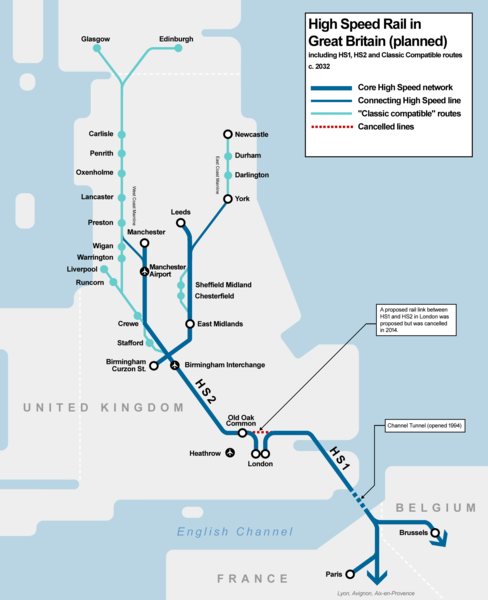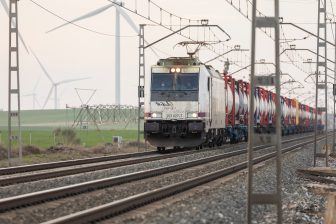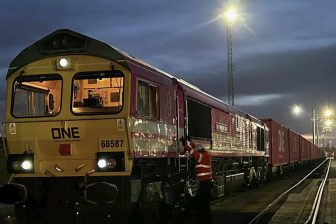
Green light HS2: good news for UK’s rail freight?
UK’s high-speed line HS2 has been given the go ahead on 11 February 2020. This is good news for rail transport in general. For rail freight, the government will need to make an effort if the industry is to enjoy the advantages of the new line, which is to connect London, Birmingham, Manchester, and Leeds and free up capacity on the existing West-Coast Mainline.
This was urged by the Freight Transport Association (FTA), a lobby group in the UK, in response to the green light announcement. “Logistics businesses now need a guarantee from government that it will use the high-speed rail line to free up space for rail freight services on existing lines”, the group said, also calling on the government to commit to a nationwide programme of upgrades to the rail network. “HS2 will not solve capacity issues in other regions.”
Free up space
Alex Veitch, Head of Multimodal Policy at FTA, comments: “FTA is calling on the government to provide reassurance that HS2 will release much-needed capacity for rail freight services on existing lines once operational; the UK’s rail network is bursting at the seams and too often freight loses out to commuter and leisure services.”
With HS2 trains able to carry more than 300,000 people per day, the shift in traffic will release significant capacity on existing lines, he argues. “FTA is seeking a guarantee from government that this capacity will not be pre-allocated to passenger services, but instead made available for bids from freight operators, in a fair and transparent way.”
Other measures
FTA argues HS2 should be considered as just one element of a nationwide strategy to upgrade the rail network, which according to the group is long overdue. “For example, we need to see upgrades to freight facilities in the trans Pennine network; this area is currently excluded from a broader programme of upgrades, which is a missed opportunity in the view of FTA.
“We would also like to see the complete electrification of the network so rail freight can become the first zero carbon freight mode, and the delivery of the Strategic Freight Network, which is a suite of projects aimed at unlocking freight capacity on the conventional network. As the UK transitions to a net-zero emission economy, rail will play a much larger role in logistics; the government must ensure the framework is in place to enable this transition.”

Reaction
In their own statement on Tuesday’s announcement, HS2 Ltd highlighted their case for capacity enhancements. “Building HS2 will relieve pressure on our overcrowded rail network. It will transform the UK economy by helping to bridge the gap between London and the South East and the Midlands and the North. And, by getting more people and freight onto trains, taking cars and lorries off our roads, and reducing domestic air travel, HS2 will be crucial to the UK reaching the net zero carbon target by 2050.”
The freight industry broadly welcomed the news. Maggie Simpson RFG Director-General expressed relief that there was a decision on the table.”The decision to proceed with HS2 is great news for the freight sector, and for the UK economy”, she said. “Our members welcome the decision and are keen to see rapid progress in constructing this new railway. Now that the uncertainty is over, Government and HS2 must act to confirm and safeguard released capacity for freight use and to resolve bottlenecks elsewhere on the network where HS2 trains will operate. This is essential to allow freight operators and customers to develop their future plans, and to ensure that the benefits of HS2 can now be delivered in practice”.
While the UK Prime Minister Boris Johnston highlighted that HS2 would relieve pressure on other modes, and made reference in his speech to an alternative of building extensive new road networks, environmentalists remain unconvinced. Nikki Williams of the campaigning group The Wildlife Trusts said nature is paying too high a price for HS2. “We urged the Government to re-consider in the light of The Wildlife Trusts’ report which evidenced the serious risk that HS2 poses to nature – and to take notice of over 66,000 people who wrote to the Prime Minister asking him to review HS2”.
RailFreight Summit UK
The possibilities of HS2 for rail freight will be discussed at the RailFreight Summit UK, to be held on 7 February in Greater Manchester. Registration for this event is now open.





